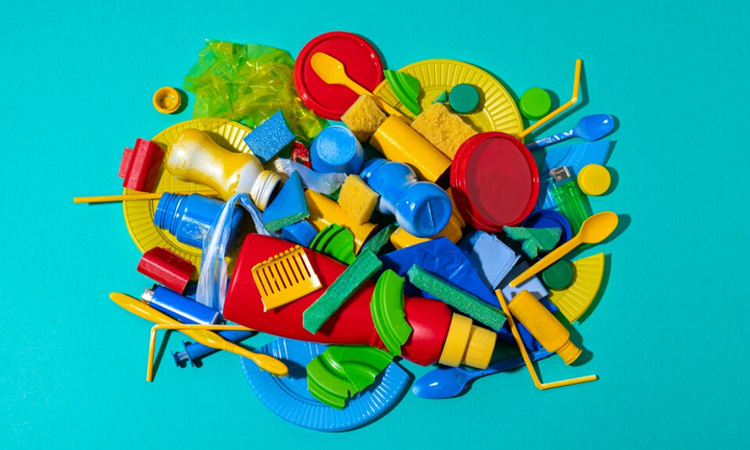Plastic products have become an integral part of our daily lives, offering convenience and versatility. However, the environmental impact of plastic, coupled with concerns about its lifespan and sustainability, has sparked a global conversation about the need for responsible consumption and waste management. In this article, we will explore the lifecycle of plastic products, the challenges they pose, and potential solutions for a more sustainable future.
The Birth of Plastic: A Brief Overview
Plastic, derived from the Greek word “plastikos,” meaning capable of being shaped or molded, was initially created to address the shortage of natural resources. The first synthetic plastic, Bakelite, emerged in the early 20th century, revolutionizing industries with its moldable and durable properties. Since then, plastic production has skyrocketed, reaching an estimated 368 million metric tons in 2019.
The Lifecycle of Plastic: From Production to Disposal
-
Extraction of Raw Materials:
Plastic production begins with the extraction of raw materials, primarily fossil fuels like oil and natural gas. The environmental impact of this stage is significant, as the extraction process contributes to habitat destruction and greenhouse gas emissions.
-
Manufacturing Process:
The manufacturing of plastic involves complex processes that release pollutants into the air and water. Additionally, the energy-intensive nature of production further strains natural resources.
-
Product Use:
Plastic products serve diverse purposes, from packaging materials to consumer goods. The duration of use varies, with some items designed for single-use and others for long-term use.
-
Waste Generation:
One of the critical challenges posed by plastic is its end-of-life phase. The majority of plastic products end up as waste, either in landfills or the environment. Improper disposal and lack of recycling infrastructure exacerbate the problem.
The Challenges of Plastic Pollution
-
Environmental Impact:
Plastic pollution has severe consequences for ecosystems and wildlife. Marine life is particularly vulnerable, with plastic waste harming fish, birds, and other aquatic organisms. The presence of microplastics, small particles resulting from the breakdown of larger plastic items, further amplifies the issue.
-
Human Health Concerns:
As plastics degrade, they can release harmful chemicals into the environment. This poses potential risks to human health, as these chemicals may contaminate food and water sources.
-
Waste Management Issues:
Inadequate waste management infrastructure contributes to the accumulation of plastic waste in landfills and oceans. Developing countries often face challenges in managing plastic waste, leading to environmental degradation and public health issues.
The Road to Sustainability: Solutions and Innovations
-
Reducing Plastic Consumption:
A fundamental step toward sustainability involves reducing our reliance on single-use plastics. Governments, businesses, and individuals can contribute by adopting alternatives, such as reusable bags, containers, and packaging.
-
Recycling Initiatives:
Enhancing recycling infrastructure is crucial for managing plastic waste. Governments and industries should invest in technologies that facilitate efficient recycling processes, turning plastic waste into new products.
-
Biodegradable Plastics:
The development of biodegradable plastics offers a promising avenue for reducing the environmental impact of plastic. These materials break down more quickly than traditional plastics, minimizing harm to ecosystems.
-
Circular Economy Approach:
Implementing a circular economy model involves designing products with recyclability in mind. This approach encourages the continuous use of materials, reducing the demand for new resources and minimizing waste.
The Role of Individuals in Promoting Sustainability
-
Educating Consumers:
Raising awareness about the environmental impact of plastic is crucial. Educational initiatives can empower consumers to make informed choices and embrace sustainable alternatives.
-
Responsible Disposal:
Proper disposal of plastic waste is essential. Individuals should participate in recycling programs, dispose of waste responsibly, and support initiatives that address plastic pollution.
-
Advocacy and Activism:
Individuals can play a significant role in advocating for policies that promote sustainability. Engaging in community initiatives, supporting environmental organizations, and participating in clean-up efforts contribute to a collective movement for positive change.
Navigating a Sustainable Future
The lifespan and sustainability of plastic products are intertwined with our collective actions. As we grapple with the environmental challenges posed by plastic, it is imperative to adopt a holistic approach that encompasses production, consumption, and waste management. By embracing sustainable alternatives, advocating for change, and fostering a sense of responsibility, we can pave the way for a future where plastic products coexist harmoniously with the planet. The journey towards sustainability is a shared responsibility, and each small step contributes to a more resilient and environmentally conscious world.
Next On Your Reading List:




